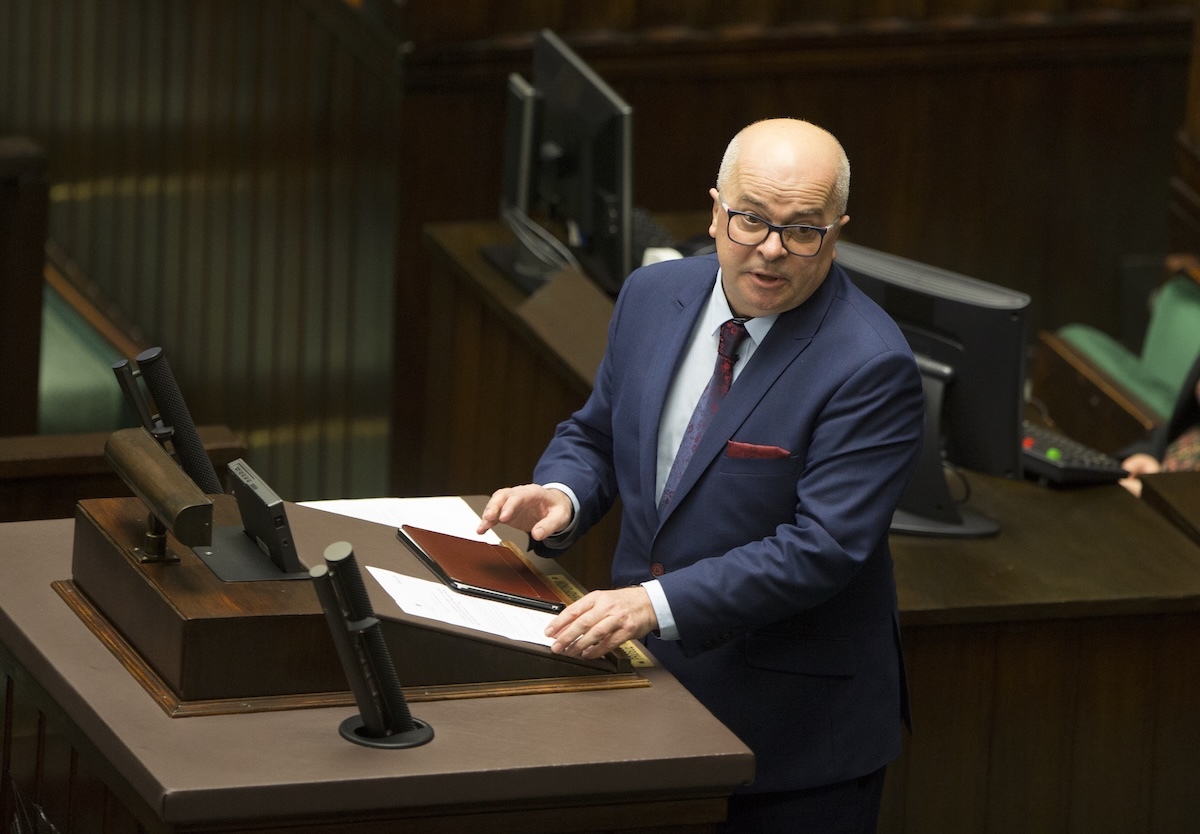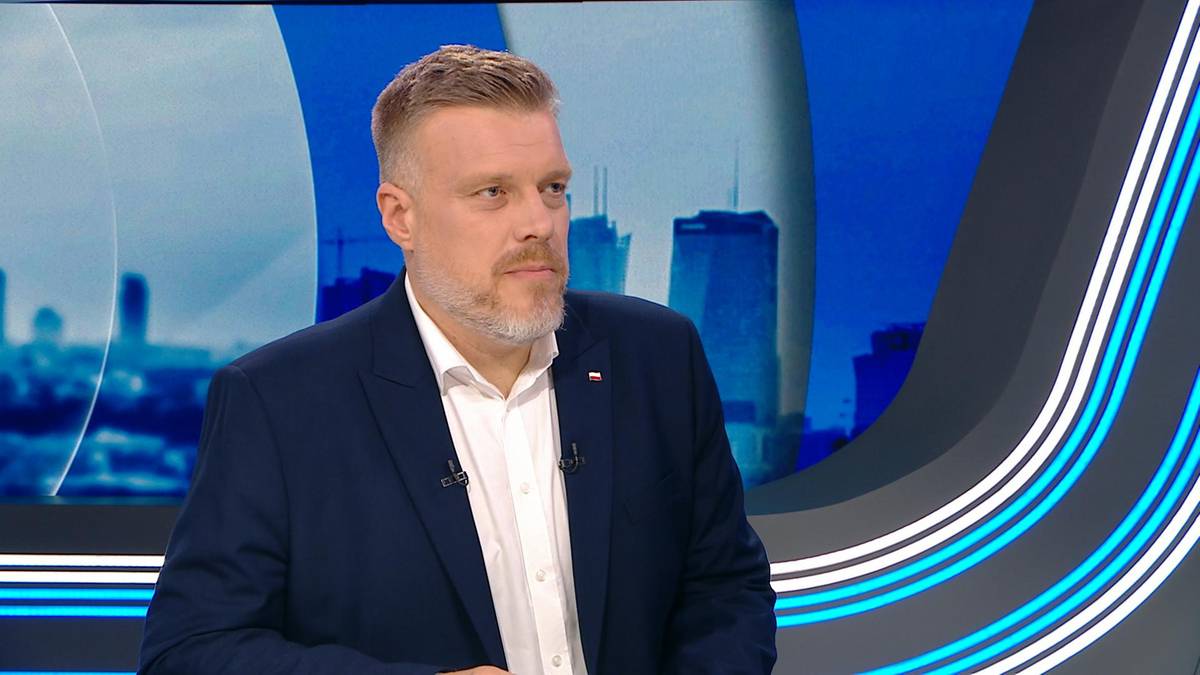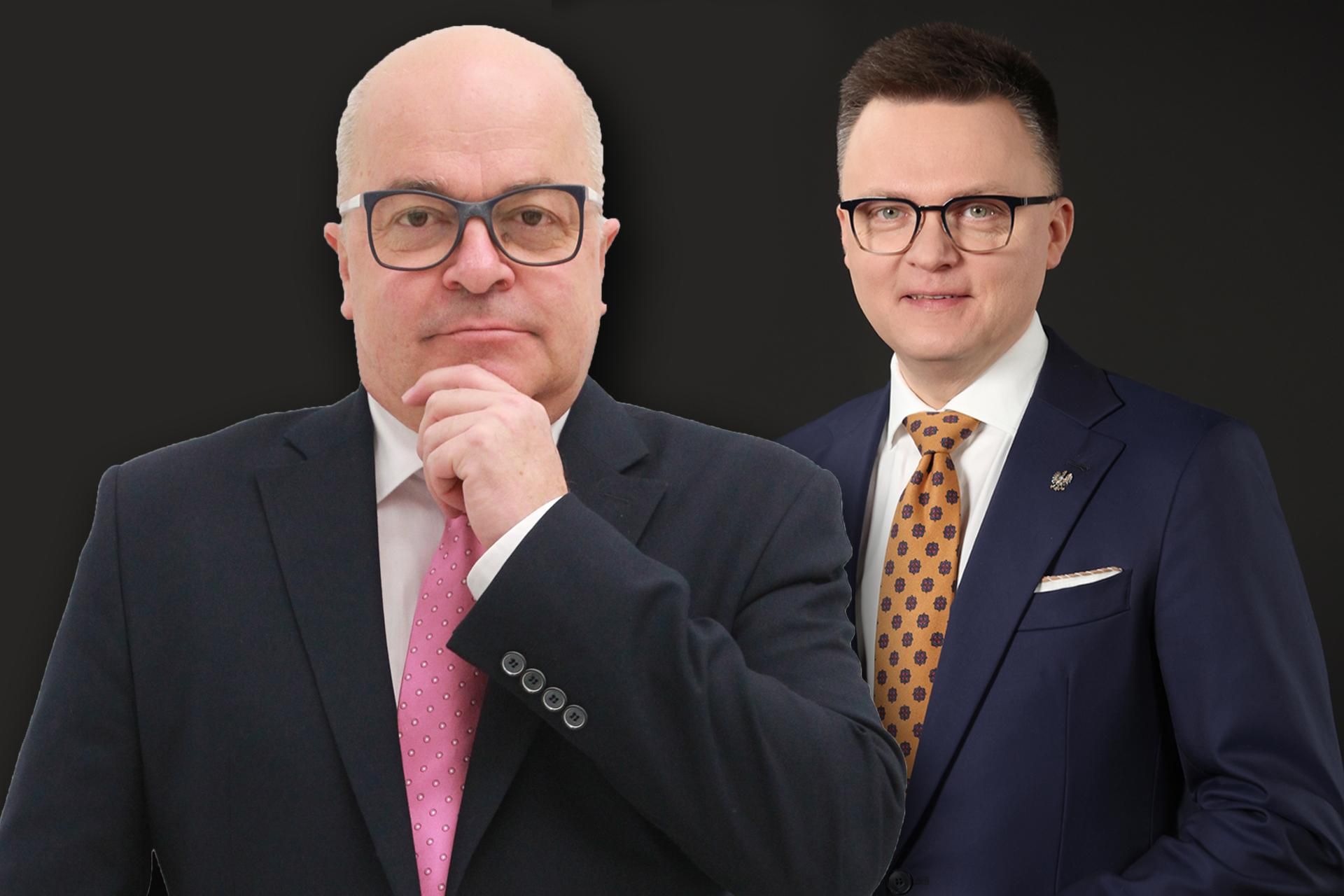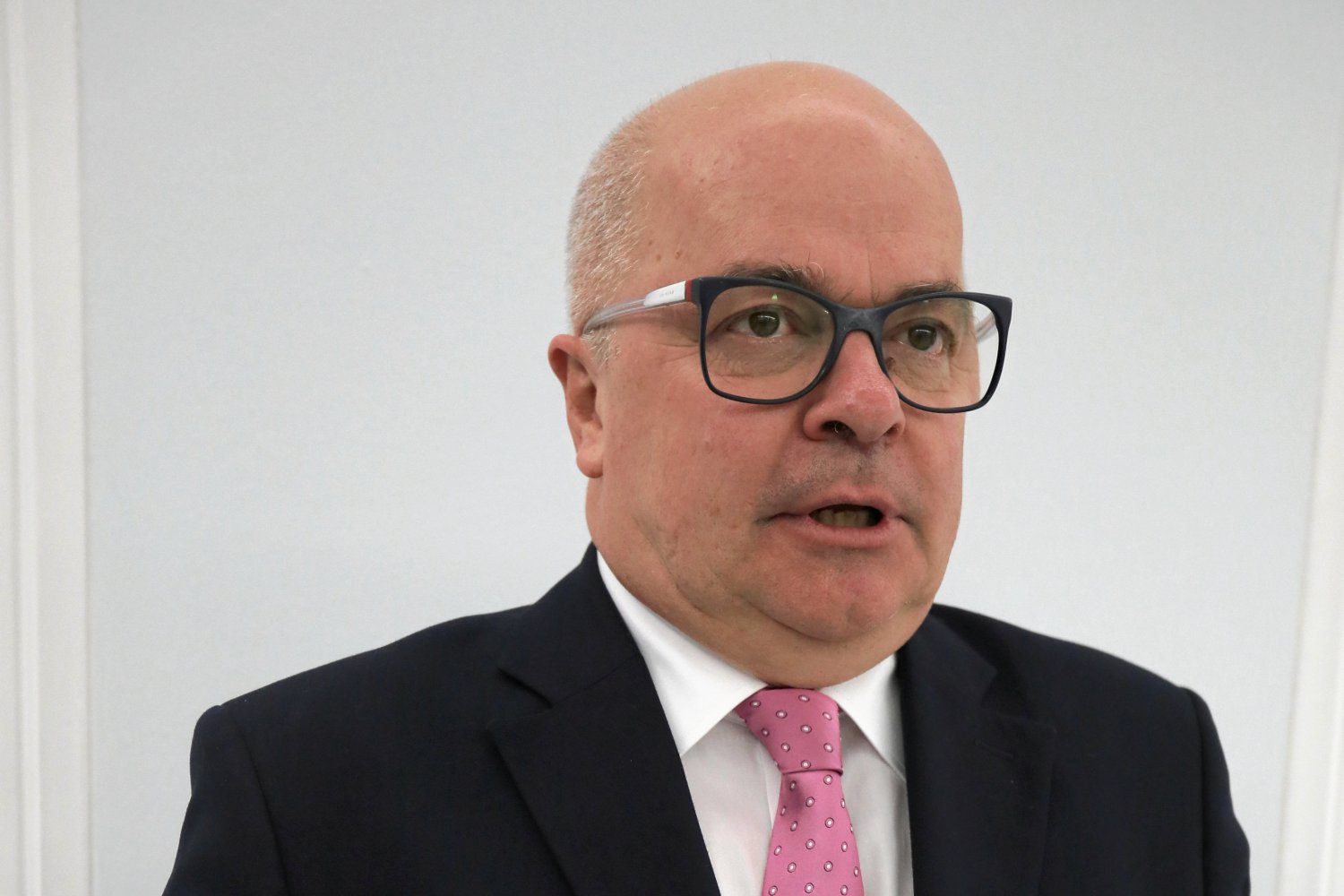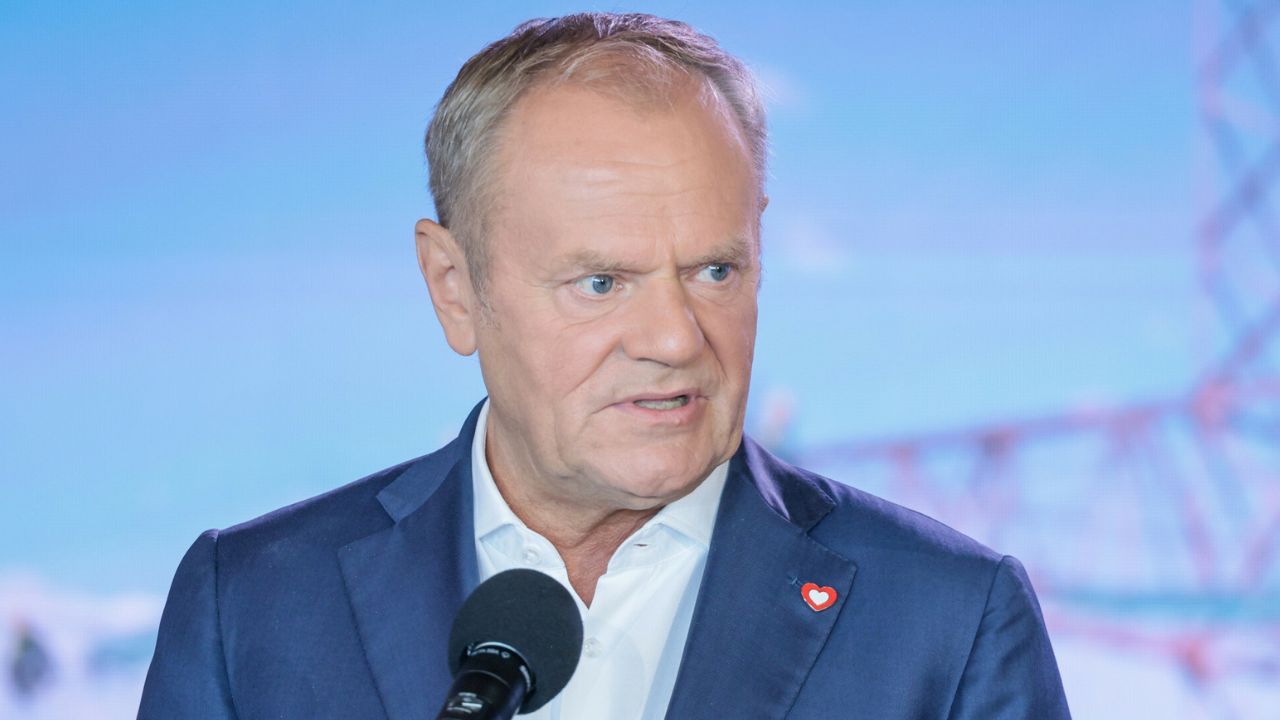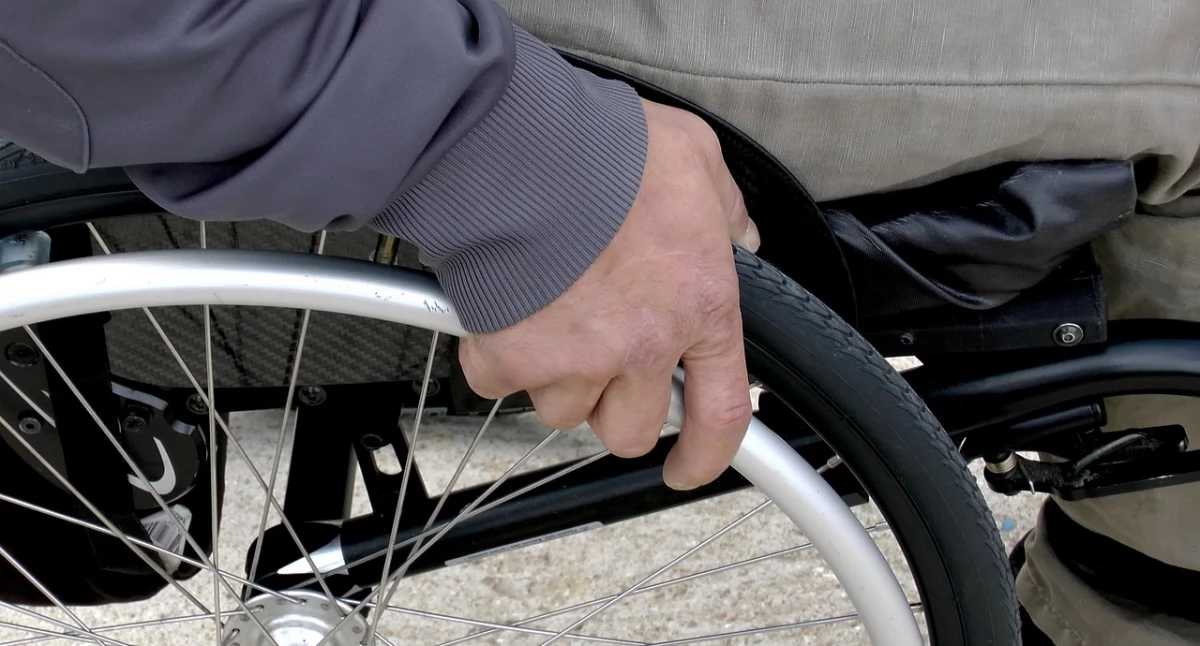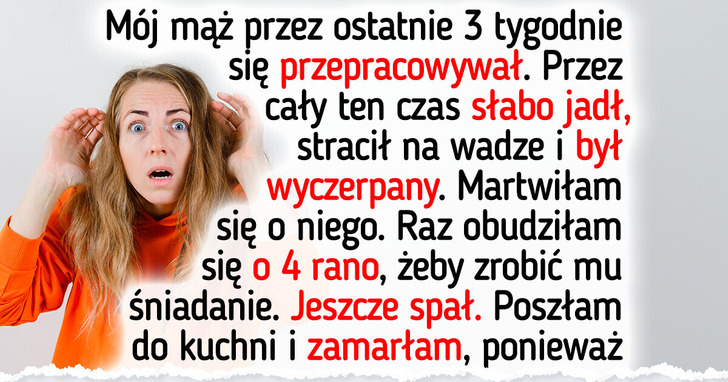Conversation with Krystian Kamiński, associate of the National Movement
Just before fresh Year's Eve Elon Musk published an article in "Welt am Sonntag" supporting AfD ("only AfD can save Germany"), which caused the hysteria of the German establishment. The main thesis of this article you discussed on your profile “X”. What do you think made the German political planet so upset? The very fact of specified publication or the thesis in the article?
– In the context of Elona Musk's article supporting AfD, the reaction of the German establishment was highly hysterical. This is primarily due to the fact that all success of this organization is seen as a serious threat to the position quo of the German political scene. AfD gains peculiarly in east Germany, where it has become a dominant political force. The success of the organization is based on the mobilisation of groups that had not previously participated in the elections, and on the social frustration resulting from the migration and economical policy of the government. The support of Musk, a global technological icon, gives AfD global publicity and undermines the media-political monopoly that attempts to marginalize this party.
The main reason for the outrage of the German establishment is the fact that the article was published. This has even outraged any journalists and editors who should be open to debate and effort to have a substantive discussion. However, the article has been faced in a superficial and limited way. It is simply a pity, due to the fact that Elon Musk, as a crucial investor in "Standort Deutschland", presented many arguments that deserved a factual argument. Unfortunately, taking this debate would require courage and readiness to face uncomfortable questions. An interesting point is besides the allegation of Musk's alleged interference in the interior affairs of Germany. Interestingly, akin allegations have never appeared against the activities of characters specified as George Soros or Bill Gates, who have been "investing" in parties and establishment environments for years. The difference is that their commitment is consistent with the dominant political narrative. In conclusion, the outrage against Musk is not derived from the content of his article, but from its effects. The publication not only strengthens the position of the AfD, but besides undermines the authority of the German establishment, which has been attempting to delegate this organization for years both on the national and global arenas.

On this occasion it is impossible not to ask about the attitude of the Polish political planet to AfD. Distrust and criticism prevail, and any allegations match the argument of German mainstream. Not even the Confederate has a single position on this issue, e.g. the National Movement has rejected the anticipation of cooperating with the AfD in the European Parliament. Do you think our concerns about AfD are justified?
– Before the erstwhile elections (2021), it was counted how many times Poland appeared in the organization programs of six major German parties. In total, this was only about 10 times – of which more than half in the context of the regulation of law. Poland is not an crucial point of mention for German policy and is not treated in partnership. AfD, like another German parties, puts German business first. Like the SPD, CDU/CSU or the FDP, it has supported or supported projects specified as Nord Stream, opposes war reactions for Poland and supports Israel's policy. On these issues, AfD is not importantly different from another German groups, so we should have no illusions about its uniqueness. At the same time, it is worth keeping a distance from the propaganda created around this party.
However, the increase in support for the AfD, especially in east Germany, suggests that we should pragmatically analyse the parties' positions on bilateral issues. Although distrust of AfD prevails in Poland – due to both the atmosphere around this organization and the controversial statements of its leaders and activists – it is worth noting that akin allegations could be made to another German groups. The participation of CDU or SPD in projects specified as Nord Stream did not rise as strong an outrage in Polish public opinion. As the National Movement, we have set ourselves the goal of membership in the largest group that opposes the migration pact, the Green Deal ideology and the federalisation of the European Union. It was clear from the start that AfD would not be in specified a group.
Roman Dmowski wrote in 1 of his works that he was not a Germanophobe, but fought against German politics towards Poland and Poles. However, he dreams of a minute erstwhile together Germany will be able to defend European civilization. Do you think this time is coming, I'm reasoning of AfD.
– Germany faces serious challenges on many fronts. The political leadership crisis, the economical recession, the consequences of the Green Deal burdening key industries, technological delays and the deficiency of a coherent strategy against the problems arising from mass immigration of the last decades are just any of the symptoms of the current situation. Political stability, which has been Germany's hallmark for years, has been severely weakened. The previously dominant CDU/CSU and SPD parties, which jointly won about 80% of the vote, present gain little than 50%. The SPD, traditionally 1 of the main political forces, can only take 3rd place in the upcoming elections. In any lands, due to the isolation of the AfD and the request to build broad coalitions, it is essential to combine forces of 3 or even 4 groups to form a majority. This arrangement does not favour unchangeable governments or long-term strategies.
The 3 pillars of German wealth are: low defence spending, inexpensive Russian natural materials and access to the Chinese market. After February 2022, Germany was forced to increase its defence spending, which importantly burdened the budget. Access to inexpensive natural materials has become much more difficult, leading to certain German companies, specified as BASF's chemical tycoon, moving production to China to guarantee their access. At the same time, the Chinese marketplace is becoming increasingly demanding – both due to American political force and the dynamic improvement of Chinese industry, which in any sectors, specified as electrical cars, is beginning to dominate German manufacturers.
These changes hit the lives of citizens first and foremost. The deterioration in the quality of life is clearly felt and confirmed in many surveys of public opinion. Germany, the 3rd largest export power in the world, now needs to answer the question of how to return to the way of sustainable economical growth, which will besides be felt by the average citizen. The problem of mass immigration, which has been underestimated or solved temporarily for years, is now 1 of the major societal and economical challenges. The media-acclaimed events specified as the Magdeburg bombing or incidents during fresh Year's Eve celebrations are only visible symptoms of deeper problems. Germany so feels discomfort regular (very diplomatically speaking) and much of it misses the way it utilized to be. This electorate present is either already voting or considering voting for the AfD. Therefore, I titled my article 5 years ago "AfD – mutiny and nostalgia" – describing their agenda and structure of voters. In addition, immigration costs are tremendous – in 2023 they amounted to EUR 48 billion, an amount comparable to defence spending. specified a situation creates frustration and deepens social divisions.
Germany faces a crucial minute in its modern history. Without fundamental changes in politics, the economy and the approach to social issues, it will be hard to anticipate sustainable stability. In the face of these challenges, it is besides hard to presume that Germany will be able to participate actively and effectively in the "joint fight for the defence of European civilization". At least until they've dealt with their own interior problems. No substance who's in charge...
In the Polish political discourse, the explanation of 2 enemies inactive dominates – of course Russia is attacked, accusing it of practically everything, but Germany is attacked no little harshly. It has strong historical conditions, but is past not a convenient tool in the hands of Polish politicians who carry out the order of individual much more powerful?
– In the Polish political discourse, historical injuries to Germany frequently represent a tool of political mobilisation and an component of abroad strategy, which can be effective in the context of interior policy, but at the same time may limit the possibilities of pragmatic cooperation with Berlin. However, in the face of the degradation of Europe's position in the world, Poland faces an crucial dilemma: whether to stick to historical sentiments or to show greater flexibility and search fresh forms of cooperation with Berlin in the context of common challenges. In the National Movement we have repeatedly stressed that there is simply a space for a balanced approach between the hysterical policy of confrontation represented by the PiS and the faithful attitude of the PO towards Germany. Germany is our largest trading partner, and according to Wallerstein's theory, Poland unfortunately holds a semi-peripheral position. Germany remains a key player in the European arena and is nevertheless a crucial actor on the global stage. The challenge for Poland will be to avoid a situation in which Berlin would decide again, in agreement with Russia, the future of the region above our heads – in a little drastic way than 80 years ago, but nevertheless.
Developing an effective modus vivendi in relations with Germany is simply a task that can specify Poland's position in Europe for the coming decades. The implementation of specified cooperation will require a cool, strategical approach, the foundation of which must be a precise definition of the Polish national interest and a consistent pursuit of it. The improvement of a policy towards Germany, which avoids both utmost confrontationism and unreflexive submission, will become 1 of the key elements of the Polish strategy in Europe.
Finally, I will ask you about your forecasts for the close future, which is the upcoming elections in Germany. Will we have a replay of the elections in Saxony and Thuringia, i.e. the AfD will accomplish a good result, only the establishment will apply the alleged sanitary cordon again? And if so, do you not think that in the next election, the AfD will win over 50% of the seats in the Bundestag. And what effect will Donald Trump's presidency have on AfD's fate?
– Forecasts for the future of AfD and political scenarios in Germany indicate that AfD can accomplish a very good consequence in the upcoming elections to the Bundestag, especially in the east lands. However, considering current polls and social sentiments – despite events specified as the Magdeburg assassination or the "sylvest of dreams" incidents, which should turn everything upside down – it seems that AfD will halt at a level of support oscillating around 20%. specified a consequence will make it easy to find a fresh ruling majority without their participation. The likely script is the CDU victory, which will then make a "big coalition" with the SPD and, if necessary, be joined by the BSW (Sojusz Sahry Wagenknecht) if the organization crosses the electoral threshold.
In the long term, if AfD does not decide to drastically change course – for example, like the Hungarian Jobbiku – the support for this organization will grow, but it will be a gradual process alternatively than a abrupt "vote shot". It seems more likely that first the sanitary cordon will collapse at the level of 1 of the lands where AfD will enter the ruling coalition before it becomes a national level. The script in which the organization acquires power on its own, either in the Landa or at the national level, now seems unrealistic.
It is worth noting that cooperation with global characters specified as Elon Musk, and with conservative American environments could improve the global image of the organization and increase its political profile. specified cooperation could besides be an effort to break stereotypes and smooth out the extremist image of the organization in public opinion. At this point, however, the ideological specificity of AfD – anti-American sentiments, profoundly rooted in part of its electorate and organization structures, will yet prevail. Although it will initially be more subdued, it is likely that everything will “get back to normal”. The closer to the end of Donald Trump's term, the stronger AfD's rhetoric will be to the sovereignty of Germany, and the anti-American slogans specified as: "Die Amis mischen sich mal wieder in europäische Angelegenheiten ein, als wären sie die Weltpolizei ("Americans mix again into European affairs as if they were the planet police"). With all their strength, they will return to the mainstream of organization narrative. As a result, AfD will stay a organization that balances between political pragmatism and the ideological profile of its electorate.
Thank you for talking.
He spoke: Jan Engelgard
Think Poland, No. 3-4 (19-26.01.2025)


